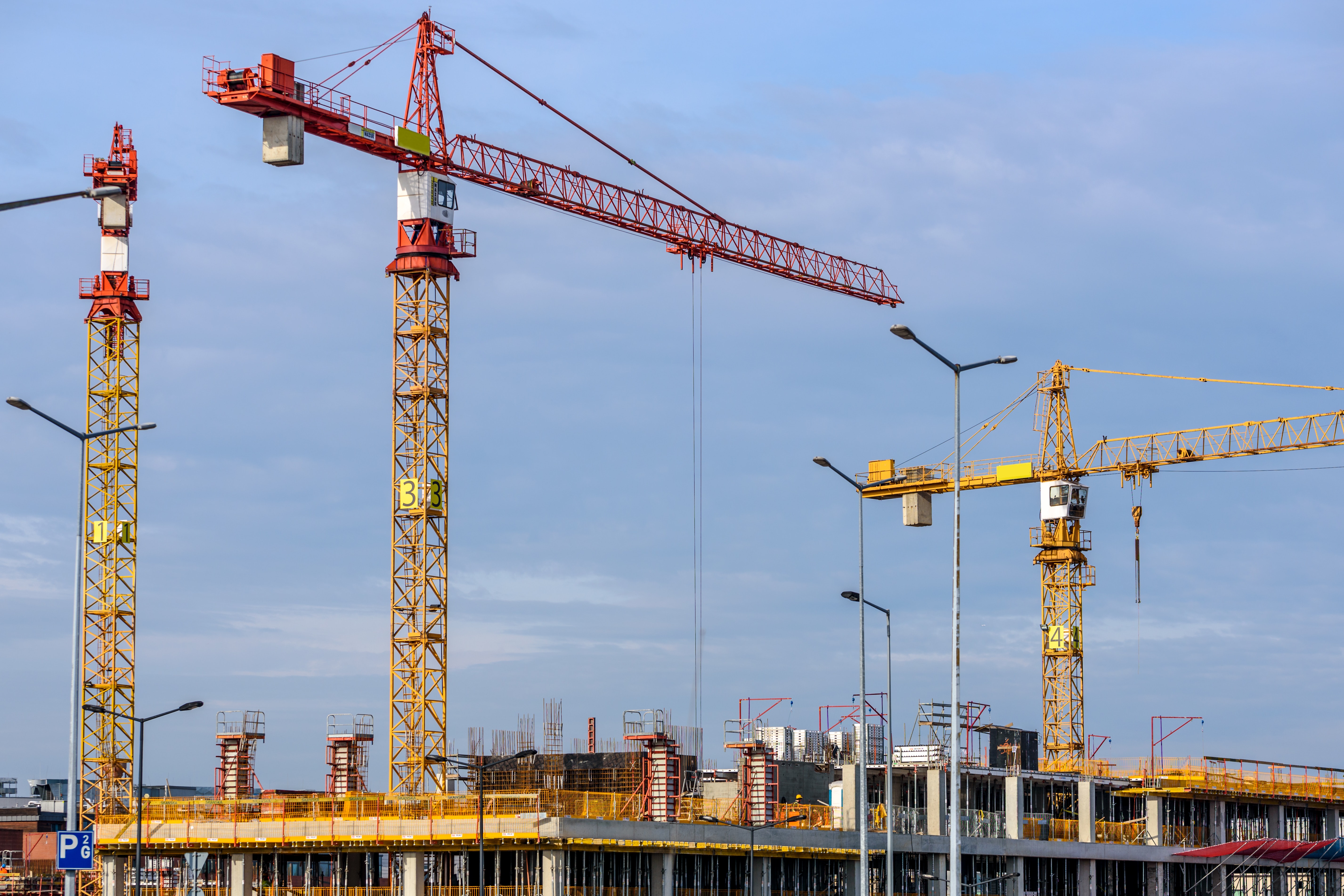Will higher development costs affect GTA high-density land prices?
The rate of price growth for new condominium apartments in the Greater Toronto Area has finally started to calm down after several years of rapid appreciation.
Unsold new condo prices jumped by approximately 40 per cent in 2017 and 15 per cent in 2018. In many GTA submarkets this year, price growth is well below double-digits.
However, according to data from BuzzbuzzHome, the average new condo price per foot in downtown postal code M5A, which includes the East Bayfront, Corktown and Regent Park, increased by 32 per cent year-over-year to $1,176 per square foot. In M5V, which is primarily the Entertainment District, prices jumped 33 per cent annually to $1,301 per square foot.
Land owners and their brokers are calculating the residual value of their lands and figuring at $1,300-per-square-foot pricing, their land should be worth $250 to $300 per buildable square foot. However, given the major increase in costs, the past back-of-envelope relationship between land and end-selling prices no longer holds.
Dramatic rise in construction costs
At a recent condo investor event, Brad Lamb of Lamb Development Corp spoke about the jump in Toronto's construction costs.
Lamb told the audience when he started his Harlowe condominium four years ago, he had hard construction costs of $190 per square foot.
When he started his East 55 project in 2017, construction costs were $275 per square foot, and now on the verge of starting his new Woodsworth project (which has no parking), construction costs at $315 per square foot – representing a 65 per cent rise in only four years.
The other major cost increase is development charges. The development charge for smaller suites in Toronto is almost $26,000 per unit, an increase of 34 per cent annually, while larger units have a charge of nearly $38,000 per unit, an increase of 40 per cent annually.
Economic theory suggests that when costs rise, developers will pay less for land to maintain their margins.
However, despite the cost increases exceeding revenue increases in many GTA municipalities over the past year, land prices continue to increase.
“According to the Q1 2019 GTA High-Rise Land Insights Report by Batory Management and Bullpen Consulting, the average land transaction with high-density potential sold for approximately $119 per buildable square foot, an increase of 12 per cent annually."
Land owners don’t want to hear about rising costs; they want to get more for their property than the last seller, especially when they see higher prices at the most recent launches, and new condo projects selling quickly.
Many of the land owners have no sense of urgency, as they’ve owned the land for several years. A recent GTA high-density property sold for $9.5 million; the previous sale occurred in 1960 for $18,500!
At a real estate charity event, developer Rob Cooper, the president and CEO of Alterra, told the audience they have no choice but to plug their noses and buy at these high land prices.
Competition for development sites is fierce. If a developer doesn’t pay above-market for land, (effectively betting on much higher future prices), their firm would have no product to sell and would soon be out of business.
Longer approval timelines, higher financing costs, higher DCs, higher construction costs, and greater built form and interior use requirements with the new TOCore planning framework will continue to put upward pressure on costs.
The only way for developers to deliver product end-users can afford, and investors can reasonably rent, is for land prices to stagnate or decline.
Do you think that will happen?
Source: Ben Myers (Bullpen Consulting)

Major changes Introduced to Address Housing Supply
Late last week, the Provincial government publicly introduced “Ontario’s Housing Supply Action Plan”, or Bill 108. This omnibus Bill proposes a number of sweeping reforms which will result in the amendment of various pieces of existing legislation including the Planning Act, the Development Charges Act and the Local Planning Appeal Tribunal Act, among others.
The stated intent of these reforms is to address the escalation in housing prices which is due, in large part, to a shortage of supply of housing across the Ontario marketplace, particularly evident within the Greater Toronto Area. The intent is to expedite the lengthy application approval process and to free up the opportunity for landowners and developers to deliver a greater number of units within a shorter period of time.
While many details remain unknown at this time, some of the significant changes which were announced and which may affect our firm’s work within the industry include:
Reforms to the Local Planning Appeal Tribunal
It is proposed that the appeal periods for municipal non-decisions has been reduced from 210 days to 120 days for an Official Plan Amendment, from 180 days to 90 days on a Zoning By-law Amendment and from 180 days to 120 days on a Draft Plan of Subdivision application. “De novo” hearings, which were eliminated as a result of the Ontario Municipal Board reform under Bill 139, could once again occur, allowing new evidence to be introduced during hearings, provided the municipality has an opportunity to consider such new evidence. There will also be a major effort, along with associated funding, to address the backlog of “legacy” appeals, many launched under the former OMB regime.
Development Charges Act Reform
One of the most significant proposed changes is that the development charges which are applicable to an application are locked in when an application is RECEIVED, instead of when the building permit is issued. This should go a long way to providing greater certainty and predictability to a project’s feasibility from the start.
Planning Act Reform
We are advised that Planning Act reforms will provide the ability to add accessory suites within existing built areas, including laneway suites, residential units above garages, and new basement apartments. It would also clarify that suites built within new homes would be exempt from development charges. The proposed amendments will also provide for the use of “inclusionary zoning” to high growth areas near transit stations.
Section 37 and Parkland Dedication Reform
A significant proposed change would amalgamate these two often sizable payments under something called a “community benefits authority”. A cap on the amount of these payments could potentially be applied based on property values within the geographic area of the development approval.
Ontario Heritage Act
It is anticipated that the ability to appeal proposed heritage designations on properties will once again be permitted, as this was removed by the previous government.
Growth Plan for the Greater Golden Horseshoe
The Bill proposes an adjustment of the intensification requirement to 50% within the built up areas for major regions, and greenfield densities within major regional municipalities of 50 jobs or persons per hectare while outside the GGH, 40 jobs and persons per hectare is proposed. We are also advised that the delineated built up areas will soon be updated as will population targets within the Growth Plan. The Greenbelt and Oak Ridges Moraine remain as is.
Reform to the Conservation Authorities Act
The legislation will provide requirements that Conservation Authorities are acting fully within their stated mandate, and that the Province may appoint one or more experts to conduct an investigation into an authority’s operations.
There are a host of other changes, but this list encapsulates the most significant ones from our perspective, at this time.
Source: Mark Emery (Weston Consulting Group)
RECENT LAND SOLD
GTA
| Address | Acres | Price | BUYER |
| 159-189 Carville Rd | 2.0 | $9.7MM | Libang Developments |
| 13247 Nunnville Rd | 5.73 | $3MM | Bolton Midtown Developments |
| 9560 Islington Ave | 1.77 | $16MM | The Kingsmen Group |
| 6200 Yonge St | 0.55 | $16.3MM | 6200 Yonge Developments Ltd |
| Dundas St W | 1.93 | $5.2MM | Tridel |
| 1405 Bloor St W | 0.98 | $16MM | Lamb Development Corp |
Source: Realtrack
*Sold by CFR
THE LAND GROUP
The LDG is a division of CFR that is committed to providing consistent, superior results to clients. The comprehensive services of the LDG include all the expertise of the Brokerage and consulting resources of CFR. This allows us to provide real estate owners, developers and investors focused, specific solutions to execute land acquisitions and dispositions. The LDG also provides the full range of technical services that are required to deliver land development projects. The LDG works as a team to deliver insightful and well-researched development opportunities. Whether our clients are entrepreneurial developers or private/public landowners, we are committed to providing all the necessary services to achieve success.
CFR has quality agents and advisors who have been involved extensively in the purchase and sale of development lands. Not only can we assist in the purchase and sale function, but CFR has the contacts and expertise to participate the whole development process. We have affiliations with planners, architects and other consultants which can assist our clients.
The key members of the Land Group are well tied into the development community. In many cases they have acted on their behalf in consulting situations. This allows the team great access to leading edge information regarding future growth areas, highest and best use, and new paradigms in development densities.
MITCHELL CHANG
President & Owner,
Salesperson
Direct: 416-907-8280
mchang@cfrealty.ca
LORENZO DIGIANFELICE, AACI
Broker of Record, Owner
Direct 416-907-8281
ldigianfelice@cfrealty.ca
JAKE RINGWALD
Salesperson
Direct 416-996-7713
jringwald@cfrealty.ca
ROB LEVINSON
Salesperson, Owner
Direct 416-907-8275
lev@sympatico.ca

